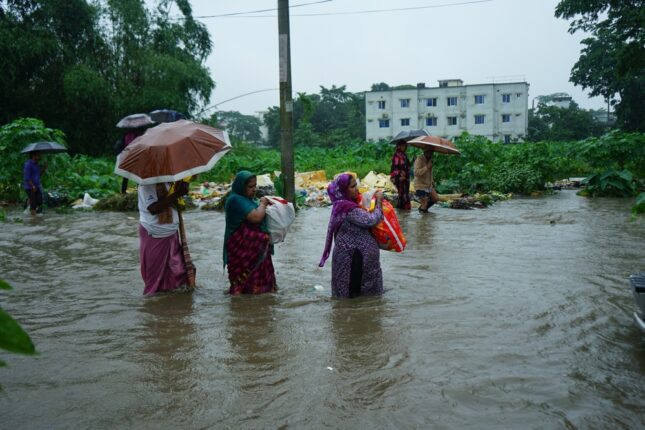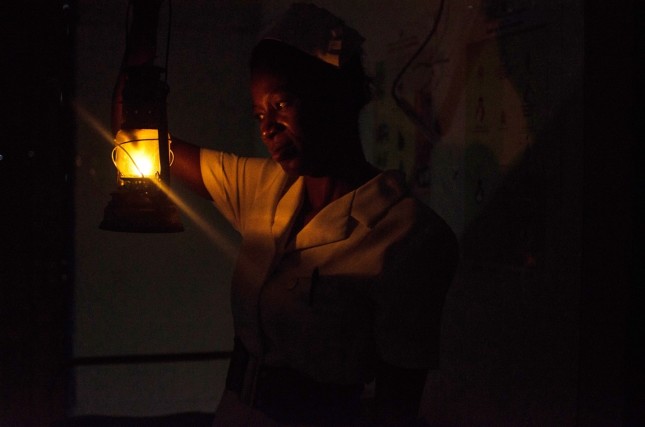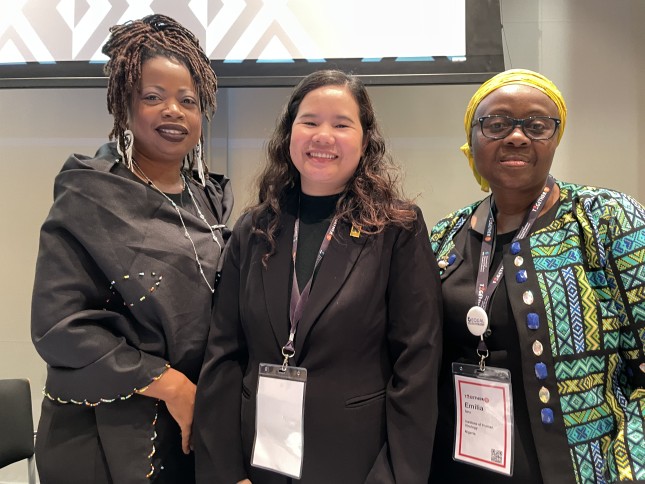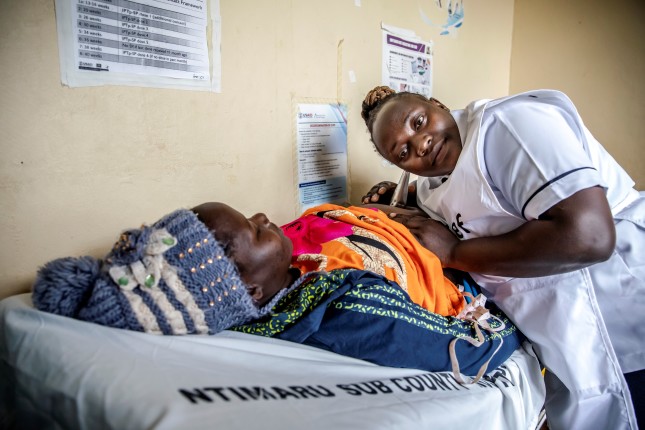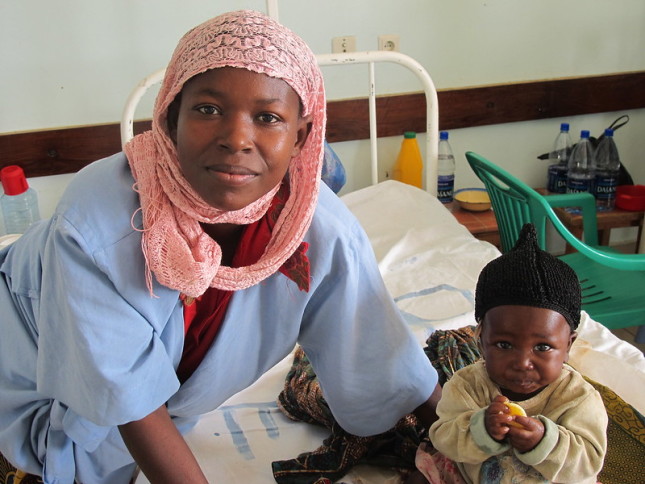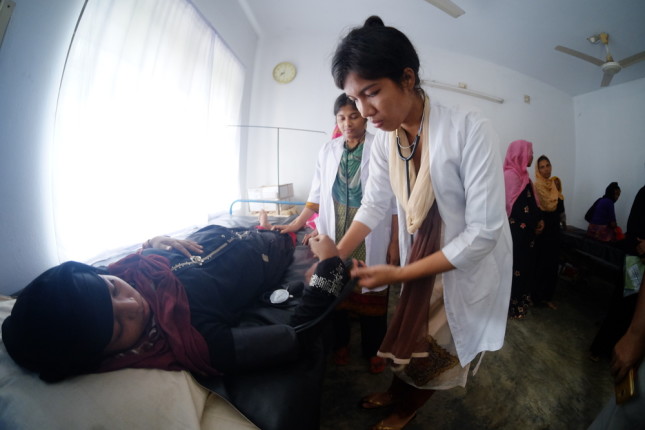-
2024 Dot-Mom Guest Contributor Highlights
›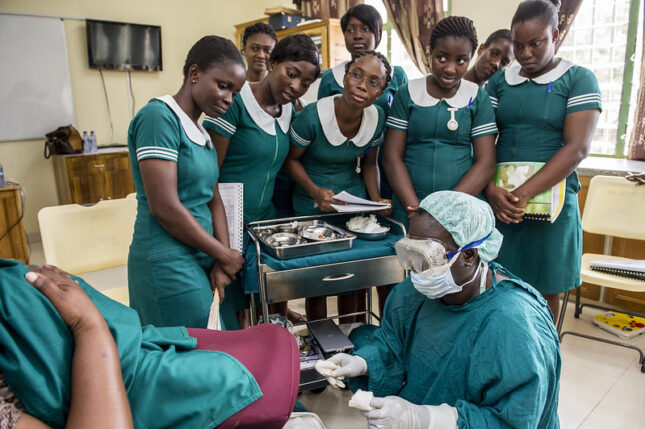
The Dot-Mom column of the Environmental Change and Security Program’s New Security Beat blog serves as a platform for diverse perspectives and insights from global experts in maternal and global health, gender equality, and peace and security. In 2024, the Dot-Mom column, hosted by the Wilson Center’s Maternal Health Initiative, was marked by an incredible number of guest contributor articles.
-
Innovative Strategies: Engaging Midwives in Climate Adaptation and Resilience
›
“There is a really important need in talking about knowledge equity around what is actually happening with the climate crisis, and what happens to maternal [and] neo-natal health as a result of it,” said Neha Mankani, Midwifery Association Capacity Assessment Strengthening Lead at the International Confederation of Midwives, at a recent Wilson Center event titled “Midwives Are Key to Climate Resilience.”
-
Q&A: Midwives as a Vital Climate Solution
›Dot-Mom // Guest Contributor // Q&A // May 3, 2024 // By Esther Bander, Rosemary Ngougu, Eugenia Mensah, Angeline Houman & Pandora Hardtman
May 5th is the International Day of the Midwife. This year’s theme, “Midwives: A Vital Climate Solution,” acknowledges the role that midwives play by delivering environmentally sustainable health services, adapting health systems to climate change, and as first responders when climate-related disasters occur. Empowering a resilient health workforce with midwives as first contacts for maternal health care can improve universal health coverage through reductions in environmental impact, as well as more efficient, less costly health systems, and stronger local economies.
-
Solar Suitcases for Safe Delivery
›
Imagine trying to perform a C-section, or conduct a delivery, in a hospital with no light.
For hundreds of thousands of health workers, this is the reality they face each night. Close to 300,000 women and one million newborns (primarily in sub-Saharan Africa and Southeast Asia) die from complications of pregnancy and childbirth each year. Hemorrhage, infection, eclampsia, obstructed labor, and unsafe abortion cause the majority of obstetric deaths— many of which could be prevented with access to timely emergency obstetric care.
-
Midwives in Humanitarian Settings: Realities of Strengthening an Essential Health Workforce
›
One in every 23 people is expected to need humanitarian assistance in 2023. That is a record 339 million this year alone. During such humanitarian crises, the needs of women, newborns and adolescents are often unmet, with devastating consequences. In fact, in 2023, 58 percent of global maternal deaths, 50 percent of newborn deaths, and 51 percent of stillbirths worldwide occur in the 29 countries with a UN humanitarian response plan or regional response plan.
-
Midwives Lead the Way: The 5th Global Midwifery Symposium
›
Midwives play a central role in maternal and newborn health. So, it is fitting that their efforts took the spotlight at a two-day event – The 5th Global Midwifery Symposium – held during the first ever International Maternal and Newborn Health Conference (IMNHC) in May 2023 in Cape Town, South Africa.
-
Top 5 Dot-Mom Guest Contributor Posts in 2022
›
In 2022, the Dot-Mom column published several pieces from expert guest authors from the greater maternal and reproductive health community. In our top read guest contributor piece of the year, Susie Jolly examined the role of colonialism in sexuality education globally. Jolly highlighted examples where sexual health knowledge is built on unethical medical research carried out on racialized people, such as the study of untreated syphilis among Black men in the United States. Sexuality educators, especially those placed in the Global North, have a responsibility to work to decolonize their work. Jolly suggests supporting resources led by marginalized people, critically examining colonialism’s influence in the understanding of sexuality, and shifting the dynamics of who decides on content to lend more weight to non-Western expertise and young people learning from their own experiences.
-
Midwives in Humanitarian Crises Need Recognition and Investment
›
More than 60 percent of preventable maternal deaths and 45 percent of newborn deaths take place in countries affected by recent conflict, natural disaster, or both. Yet as Sarah B. Barnes, Project Director of the Maternal Health Initiative, observed at a recent event hosted by the Wilson Center and UNFPA, in collaboration with the Inter-agency Working Group on Reproductive Health in Crisis (IAWG) and White Ribbon Alliance, “the leading causes of both maternal and newborn death occurring in humanitarian settings are considered to be preventable if managed by skilled providers and adequate resources.”
Showing posts from category midwives.


